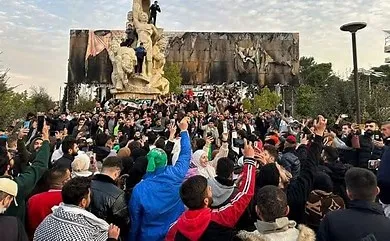European and Middle Eastern leaders convened in Riyadh to address the ongoing humanitarian crisis in Syria and consider lifting decades-old sanctions. This significant meeting marked the first regional summit since the fall of President Bashar al-Assad in December.
The EU has announced a foreign ministers’ meeting on January 27 in Brussels to evaluate the potential easing of sanctions. Kaja Kallas, the EU’s foreign policy chief, emphasized the bloc’s stance on supporting an inclusive Syrian government that respects the rights of women and minorities while remaining vigilant against radicalization.
Call for Sanctions Relief
Saudi Foreign Minister Prince Faisal bin Farhan Al Saud advocated for lifting international sanctions on Syria, stating that their continuation hinders development and reconstruction.
“We stressed the importance of lifting unilateral and international sanctions imposed on Syria,” said Prince Faisal.
Syria’s new Foreign Minister, Asaad Hassan al-Shaibani, also called for the removal of restrictions, emphasizing their adverse effects on the Syrian population.
Sanctions and Humanitarian Impact
Sanctions have severely impacted Syria’s economy, causing shortages in essential goods such as food, medicine, and fuel. Al Jazeera’s Mohammad Jamjoom highlighted the dire consequences, including soaring prices and widespread power outages.
In response, the US recently issued a six-month sanctions exemption to facilitate humanitarian transactions, a move aligned with European discussions to explore “smart sanctions” that would provide relief without compromising accountability for war crimes.
Rebuilding Syria: International Perspectives
Germany, Italy, and France have shown support for relaxing sanctions to support reconstruction, but decisions require consensus within the EU. German Foreign Minister Annalena Baerbock underscored the importance of maintaining sanctions on allies of al-Assad while advocating targeted relief for the Syrian population.
Meanwhile, analysts noted that the new Syrian administration, led by Hayat Tahrir al-Sham (HTS), must demonstrate significant progress to gain international recognition and unlock broader reconstruction support.























